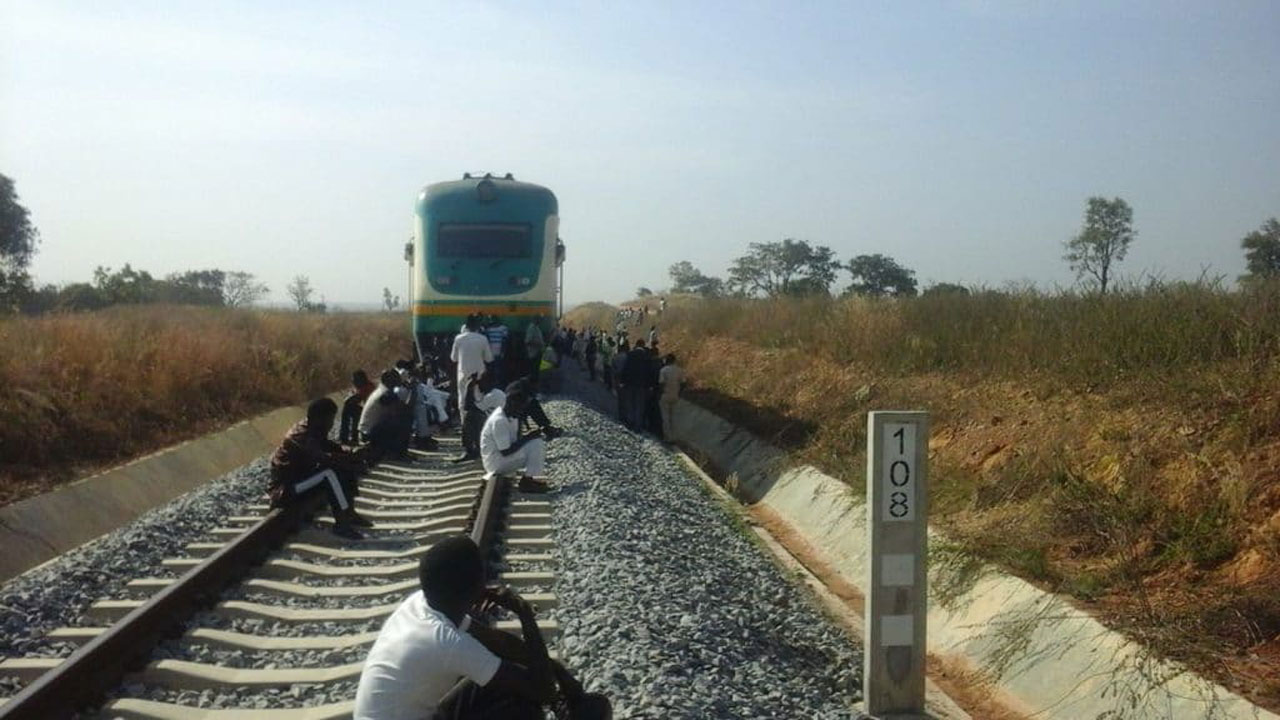
At a time when Nigerian commuters are seeking refuge in rail transportation, consequent upon security concern on the roads’ equivalent, reports of incessant breakdown of the passenger coaches of the Nigerian Railway Corporation (NRC) trains are unsettling and utterly embarrassing. The authorities should handle the incidents with more than kids’ gloves, given the amount of time, energy and money that have been expended lately on rail. Moreover, being about the newest source of hope for the common and not so common Nigerians in this era of acute insecurity, whatever is wrong with the system must be fixed, thoroughly and urgently.
Economically, the NRC has reportedly and excitedly been generating revenue not only to keep the rails going and staffers remunerated, but also to shore up dwindling federal revenue that is struggling to recover from COVID-19 onslaught, erratic oil exports and falling Naira value, all of which, in conjunction with widespread insecurity, are dealing a deadly blow to federal liquidity. According to the National Bureau of Statistics (NBS), the country generated N918.66 million through the NRC in the first three months of the year as it moved less passengers and lower volume of cargo compared to last year, which is attributable to the frequent breakdowns.
Regrettably, the railway blot is happening just when it was thought that the moribund corporation was coming back to life with the opening of the Abuja-Kaduna train service and the Lagos-Ibadan route. It is certainly not a time for the rail system to be recording frequent breakdowns. More disheartening is the fact that the locomotives are said to be ‘new,’ having been acquired from China not long ago. It is therefore astonishing that they are breaking down and leaving passengers stranded in the middle of the bush where they are exposed to danger of being attacked by bandits.
And to the chagrin of Nigerians, particularly the train passengers, managers of the corporation are defending the embarrassing breakdowns, rather than face the reality and think of how to tackle the problem. Specifically, the Operations Manager of the Abuja-Kaduna trains, Mr. Victor Adamu declared that the breakdown of the train is normal occurrence that happens to anything that has mechanical and electrical components. This is a shame, considering that the breakdown incidences are not one-off.
The Railway authorities should accept that in other climes, railways do not break down very frequently, leaving passengers stranded in the middle of nowhere and at the mercy of marauders. Adamu’s defence of the incidents only signifies typical Nigerian phenomenon, which the world often marvel at; and where roads, rail lines, schools, hospitals and other basic infrastructures are in decadent state due to lack of maintenance. The trains may be breaking down due to lack of maintenance.
The Abuja-Kaduna train reportedly developed fault few minutes after it left Rigasa station in Kaduna State. The passengers said the train had initially stopped twice before it finally broke down in the middle of the forest in Dutse, Kaduna, around 7:00 a.m. It was gathered that the train had broken down several times in the past leaving passengers stranded, disrupting their travel plans and also exposing them to undue security risks.
Managing Director of the Nigerian Railway Corporation (NRC), Fidelis Okhiria, said the train broke down as a result of engine failure. The Minister of Transportation, Rotimi Amaechi, reportedly had assured last year that the locomotives that have broken down up to two times would be returned to China. Why have these locomotives not been returned?
What grade of locomotives is “new” but breaking down so quickly? The train breakdown at Dutse was certainly not the first occurrence according to reports. In November 2020, a locomotive turbo-charge reportedly failed causing a breakdown on the Abuja-Kaduna rail route. The NRC apologised and pledged commitment to ensure there is no recurrence of the incident.
“We have new locomotives and we have called the Chinese because we never expected the mechanical fault at this early stage… I have instructed the NRC to fix it or invite the Chinese. If this is happening now, then they should bring back our old locomotives… we got the new locomotives to increase the turnaround time,” Amaechi reportedly stated. But six weeks later, the train broke down again on January 3, around Akere, a rural area in Kaduna State where NRC engineers battled to fix it.
The frequency of the breakdowns shows that little has changed in the lackluster NRC operations, which saw to the collapse of the rail system. New locomotives should not be breaking down any sooner than they were imported.
There is need to verify claims that the locomotives were actually new or if they were refurbished engines and dishonestly branded new. Faced with alarming insecurity crisis in the country, particularly, on the notorious bandit infested Abuja-Kaduna highway, rail route has been seen as a safer alternative. But frequent breakdowns, often deep in the forest easily ignite fear as bandits are everywhere.
The contract for building the Abuja-Kaduna new rail line was awarded in December 2010. The track-laying for the single standard gauge line was also launched. The estimated cost of the rail project was $874 million (approximately N317.3 billion). China’s EXIM bank provided $500 million as a concessionary loan for the project, while the remainder was provided by the Federal Government.
The corporation needs to review its operational procedures to compare with international best practice before further damage is done.






